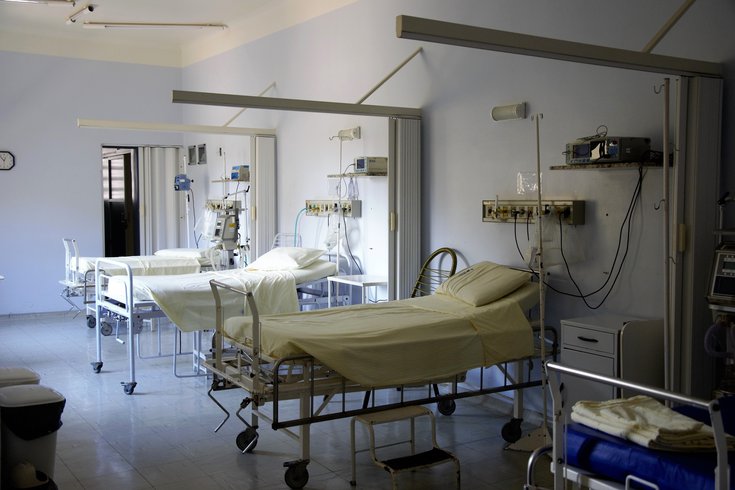
May 01, 2023
 Pixabay/Pexels.com
Pixabay/Pexels.com
Fecal matter transplants have become a mainstream treatment for C. difficile, a common intestinal infection spread in health care settings. Vowst is a new FDA-approved pill that can be taken orally, setting it apart from enema-based fecal transplant treatments.
Over the last decade, doctors have turned to poop in order to treat a common bacterial infection that wreaks havoc on the intestines.
The treatment, called a fecal matter transplant, uses poop samples donated from a healthy person to replenish friendly bacteria in the recipient's gut.
Fecal transplants are an effective treatment for people suffering from the bowel infection Clostridioides difficile — called C. difficile or C. diff, for short — that often spreads in health care settings like hospitals. The condition typically affects older adults who are taking antibiotics for another medical reason. Certain antibiotics can disrupt the normal balance of bacteria in the gut, allowing the C. diff infection to harm the intestines and colon.
Last week, for the first time, the U.S. Food & Drug Administration approved a fecal transplant pill that can prevent C. diff from recurring in adults. Until now, most fecal matter transplants have relied on stool banks, which collect healthy samples from donors to be given to patients anally as a liquid or capsule medication.
The pill, called Vowst, was developed by Seres Therapeutics Inc. and could be poised to overtake the more invasive, enema-based treatments now available.
"The availability of a fecal microbiota product that can be taken orally is a significant step forward in advancing patient care and accessibility for individuals who have experienced this disease that can be potentially life-threatening," said Dr. Peter Marks, director of the FDA's Center for Biologics Evaluation and Research.
C. diff infections cause symptoms like diarrhea, severe cramping, dehydration and fever. In serious cases, C. diff can lead to colitis, organ failure and death. The bacterial infection is estimated to affect about 500,000 patients in the U.S. annually, contributing to about 15,000 to 30,000 deaths. It is the most commonly spread health care-linked illness in the country.
Much like fecal transplant samples taken from stool banks, Vowst uses poop from human donors who have been pre-screened for potential health risks. The stool samples are also tested for unwanted viruses, infections and parasites.
With Vowst, Seres Therapeutics takes the process a step further by purifying samples to remove waste, isolate healthy gut bacteria and kill harmful organisms.
The human intestinal tract contains millions of microorganisms collectively known as the gut microbiome, which has a mix of bacteria, viruses and fungi. These gut microbes are not only important for the health of the GI system, but also have been linked to the body's mental health regulations. Digestive disorders that throw off the balance of gut bacteria can increase the risk of depression and anxiety.
Since antibiotics affect the gut microbiome, people with C. diff are susceptible to the infection releasing toxins that have long-term effects on their digestive tracts. The disease is often recurrent and is most prevalent among older adults in hospitals and long-term care facilities.
"Recurrent C. difficile infection significantly impacts patients' quality of life, both physically and emotionally, leaving many living in tremendous fear of future recurrences," said Christian John Lillis, executive director of the Peggy Lillis Foundation for C. diff Education and Advocacy. "Patients have been waiting for new treatment options that address a key concern: prevention of an additional CDI recurrence."
Patients on Vowst will take four capsules daily for three consecutive days.
A clinical trial comparing about 90 C. diff patients who took Vowst to a similar-sized placebo group found that after eight weeks, the recurrence rate for the infection was only 12.4% among those who took Vowst versus 39.8% for people who took the placebo. A second, larger trial to study side effects found that the most common symptoms among those taking Vowst were abdominal bloating, fatigue, constipation, chills and diarrhea.
Following the FDA's approval, Reuters reported that physicians believe the Vowst's efficacy could lead to its replacement of fecal matter transplants in most patients. The FDA's decision came after last year's approval of the first enema-based fecal transplant drug, made by Ferring Pharmaceuticals.
In the past, the FDA had warned that fecal transplants can lead to other serious infections, like E. coli, if samples were not properly screened. The growth in popularity of fecal transplants spawned a controversial do-it-yourself movement among C. diff patients and their families, who struggled to obtain timely, approved care from medical providers due to tight FDA oversight.
Part of the promise offered by Vowst is that thousands of capsules can be produced from each sample, increasing the efficiency and availability of the treatment. Existing fecal transplants can be provided using a single donor or multiple donors, with studies suggesting comparable efficacy in treating C. diff, but they are less efficient to distribute and administer.
Stool banks will continue to play an important role in serving patients groups that are not eligible to take Vowst, including children and adults with treatment-resistant cases of C. diff, an official from OpenBiome, the largest stool bank in the U.S., told The Guardian.
Before fecal transplants became a common treatment for C. diff, health care providers often favored using specific groups of antibiotics to counteract the infection. High rates of recurrence from antibiotic treatment led experts to shift toward recommending fecal transplants, which showed better results in stabilizing patients' gut bacteria.
Vowst will be marketed in the U.S. in partnership with Nestle's health science unit, which has been working with Series Therapeutics to commercialize the drug since 2021.